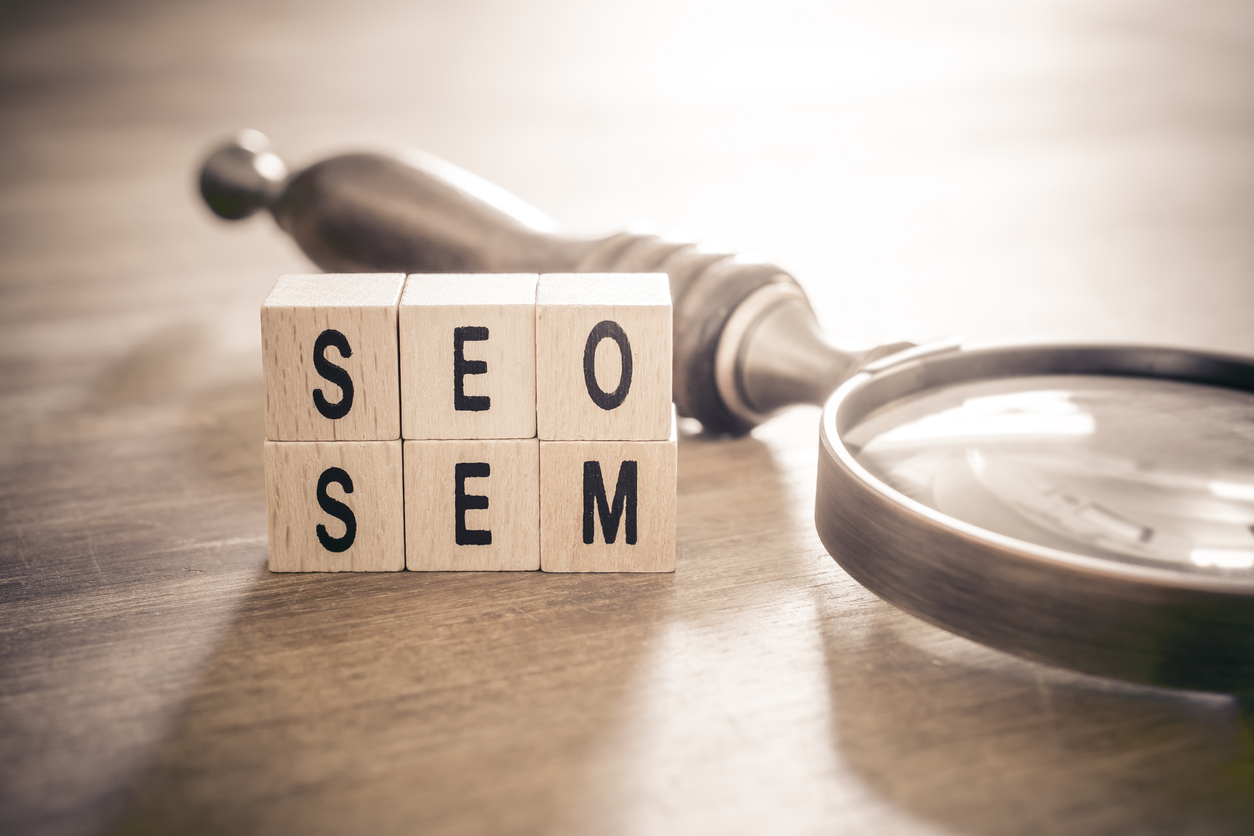There are almost 2 billion websites live on the internet today. Unfortunately, most of these websites almost never get visitors. Why is this?
Well, as the internet expands and more businesses take to the web, search engines rely on hundreds of algorithms to sort and rank websites accordingly.
These algorithms factor in on-page elements like content quality and page speed, as well as off-page elements like backlinks and social media.
To increase searchability, web presence, and to remain competitive, businesses in all industries have decided to prioritize search engine optimization (SEO) and search engine marketing (SEM) strategies.
But what exactly are SEO and SEM, and why are they today’s marketing craze?
SEO vs SEM
When it comes to online marketing, nailing down solid SEO and SEM strategies are crucial to the success of a business’ website. While the two are similar and often used interchangeably, they’re not quite the same.
What is the difference between SEO and SEM?
SEO is that act of optimizing a website so it ranks higher and more frequently on search engines. SEM, on the other hand, includes both SEO and paid-search-advertising like pay-per-click (PPC).
To get a deeper understanding of the difference between SEO and SEM, we’ll break down each in further detail starting with SEO.
What is SEO and why is it important?
SEO is one component of SEM, but it’s perhaps the most important to look after since it’s how your website will bring in visitors organically.
For the non-marketers, an organic visit means someone reached your website without the use of advertising. In simpler terms, it’s free traffic, which every marketer loves. More organic traffic means more eyes on your content, better brand recognition, more sales opportunities, and much more.
Websites with great SEO factors typically rank higher and more frequently on search engines like Google, Bing, Yahoo, and others. Some of these factors include:
On-page SEO
- Proper use of H1, H2, and H3 tags across all content.
- Proper use of keywords.
- Deep interlinking structure.
- Optimized meta descriptions.
- Proper alt-text for images.
- Fast page loading speeds.
- Other factors that show search engines your website is user-optimized and user-friendly.
TIP: Dive deeper into content optimization and organic ranking best practices by learning everything there is to know about on-page SEO in 2019.
Off-page SEO
- Robust backlink structure.
- High equity links (do-follow versus no-follow).
- High-quality links (.edu, .gov).
- Other factors that show search engines your website is a reliable source of truth.
Being the first result for a web search is extremely valuable. As a matter of fact, the #1 organic result, on average, accounts for 33 percent of all traffic for a term. The #2 result sees a huge drop-off at 17 percent, followed by 11 percent for the #3 result.
By the time we reach page two on Google, 90 percent of all visitors have already found what they’re looking for. Very few visitors go beyond page two.
With this information, it’s no wonder why millions of websites struggle to attract organic visitors. Fortunately, SEM provides other ways to bring in visitors.
TIP: There are hundreds of terms, slang, and jargon in the digital-search world. Luckily, there is this SEO terms dictionary that can help you make sense of it all.
What is SEM?
SEM does encompass SEO, but we’ll focus more on the aspects of paid search advertising like pay-per-click (PPC).
Understanding PPC
When performing a Google search, you may notice advertised content near the top of the results page. Businesses pay for their results to show up here for a limited amount of time, and organic results will show up beneath them.
Using Google Ads, marketers input keywords they’d like their advertised content to show up for. They’ll then bid for the cost of a keyword.
High volume keywords bring in lots of traffic but are typically more expensive to advertise for. Whereas low volume keywords bring in less traffic but are less expensive to advertise for. The quality of this traffic could also vary depending on how specific a keyword is. It’s no wonder why digital marketing is a constant adventure.
Why is SEM important?
Aside from putting together a robust SEO strategy, running a PPC campaign does come in handy under certain circumstances.
For example, if you just launched a new website, it could be useful to advertise it using relevant keywords. Having that top spot is sure to bring in a variety of traffic and familiarize them with your brand. Marketers could also advertise case studies and white papers using Google Adwords campaigns. This could bring in lower-funnel MQLs ready to learn more about your business.
These are just a few of the many use-cases for paid search advertising.
Master your online marketing
It’s easy to see why SEO and SEM are so important for remaining competitive on the web.
Search engines rely on SEO to provide visitors with relevant answers to their questions, which is why online and content marketers are so focused on it.
Businesses with great online presences are likely to have laser-focused SEO and SEM strategies, and are seen as authoritative voices in their respective industries.
Although, SEO factors are constantly getting tweaked and refined. This is why businesses invest in SEO software to analyze web content, backlink structures, and keep up with algorithm changes.

| Looking to build a full-scale B2B content marketing strategy? Our complete guide breaks down finding an audience, creating crowdsourced content, establishing goals, and more. |


 by Ken Marshall
by Ken Marshall
 by Caroline Lee
by Caroline Lee
 by Adam Steele
by Adam Steele